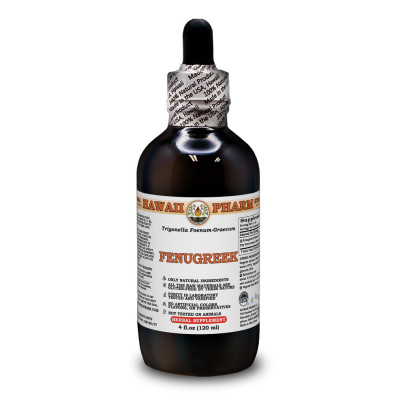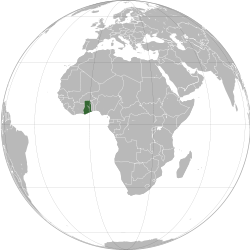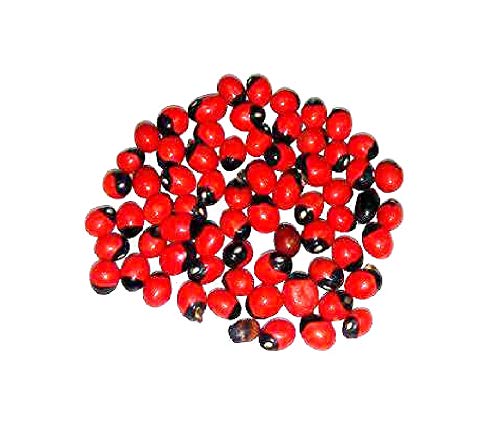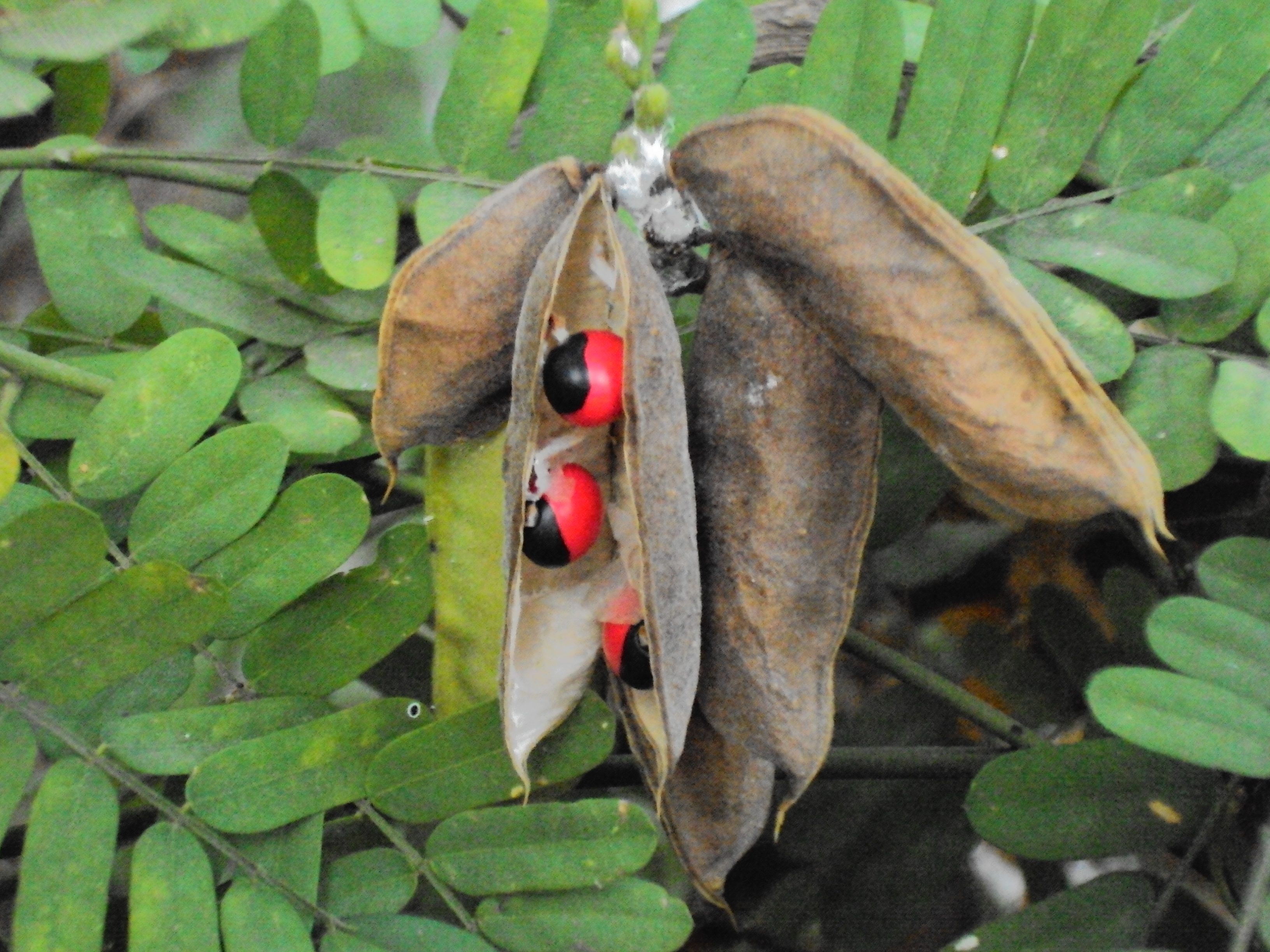Herbal Cure for Diabetes Mellitus #1: Abrus precatorius
This is an herbal cure that comes from Ghana, a country in western Africa, though Abrus precatorius plants are found in Asia and Australia as well. It is a flowering plant that belongs to the Fabaceae family. The jequirity bean is best known in Africa for the seeds that are used as beads in percussion instruments. These seeds are brightly colored and extremely toxic due to their abrin content. A single seed, if chewed, can kill a grown adult. That being said, most medicines are also poisons if taken in doses that are too high. The safest and least toxic medicines, including herbal remedies, are those that tend to be used in the general population. If you are looking at doing diabetes self-medication without a doctor, and you're located in an area of the world when other, less toxic herbal remedies for diabetes aren't available, be sure to use Abrus precatorius with great respect being mindful of its potential toxicity if taken at the wrong dose.Jequirity Bean, also known as Rosary Pea or Abrus precatorius, is a folk medicine that’s used by traditional healers in western Ghana as an alternative treatment for diabetes mellitus. This herb contains a substance known as trigonelline, a phytohormone that reduces blood sugar levels by inhibiting glucose-6-phosphatase and glycogen phosphorylase. Trigonelline enhances insulin reception in red blood cells to generally improve glucose uptake by cells throughout the body.
Trigonelline is an herbal substance that inhibits two of the primary enzymes in glucose metabolism that controls blood sugar levels. This substance is being studied by Big Pharma to produce a synthetic version that might make big profits, but patients can access this medicine now in its natural, affordable plant form. In fact, trigonelline is a substance that is also found in Fenugreek / Trigonella-foenum graecum another powerful alternative medicine for diabetes that is considerably less toxic.

 Abrus precatorius is an herbal cure for diabetes that comes from Ghana, a country in western Africa though it is also famous in India and used in Ayurvedic and Siddha medicine. The Abrus precatorius plant is also found in Asia and Australia.
Abrus precatorius is an herbal cure for diabetes that comes from Ghana, a country in western Africa though it is also famous in India and used in Ayurvedic and Siddha medicine. The Abrus precatorius plant is also found in Asia and Australia.Depending on where you’re located in the world, you might choose Fenugreek or Rosary Pea for the trigonelline content of these plants. Fenugreek is a bit safer than Abrus precatorius as an herbal cure for diabetes.
Symptoms of toxicity due to abrin exposure are nearly identical to the symptoms of toxicity due to ricin, a toxic component of the castor oil plant. As with castor oil (a gentle, yet effective cure for many ailments), Abrus precatorius can be extremely valuable as a medicinal agent, but only with proper preparation.
Abrus precatorius has been shown to decrease fasting blood sugar in a dose-dependent fashion. In other words, higher doses of Abrus precatorius led to lower fasting blood sugar levels. The use of Abrus precatorius leaf extract restores pancreatic beta cell function while increasing the size of the pancreatic islets of Langerhans. This herb also modulates insulin levels while inhibiting alpha-amylase and alpha-glucosidase levels.
 IndianStore4All IS4A Set 51 Natural Rakt Gunja Mantra Siddha Laal Chirmi Red Gunja for Lakshmi
IndianStore4All IS4A Set 51 Natural Rakt Gunja Mantra Siddha Laal Chirmi Red Gunja for Lakshmi
Abrus precatorius as a Natural Form of Birth Control
Women of child-bearing age who wish to conceive should not take Abrus precatorius as a cure for diabetes because it is a natural contraceptive agent. Animal studies have shown that Abrus precatorius is able to reversibly block ovulation in certain species of rats. As such, Abrus precatorius may be able to function as a natural, herbal contraceptive agent.Abrus precatorius Dosing:
Abrus precatorius dosing as an alternative cure for diabetes:WARNING: The seeds must be properly heat-treated to remove the poison before they can be used as a medicine. They must be boiled in milk and then dried. The high temperatures causes the abrin protein to become denatured and detoxified.
Leaves of the Abrus precatorius plant are used to make tea to treat fevers and respiratory infection.
Abrus precatorius dosing should begin at 100 mg per kg of the patient’s body weight. Increase the dose up to 400 mg/kg.
Often, for diabetes, patients use an Abrus precatorius leaf extract. Follow dosing instructions on the bottle.

 Click here to subscribe to the Living Database!
Click here to subscribe to the Living Database!
Related Posts: https://alivenhealthy.com/2023/04/07/herbal-remedy-for-gestational-diabetes-silymarin-marianum-milk-thistle/ https://alivenhealthy.com/2023/04/07/preeclampsia-herbal-treatment-and-natural-treatment-for-gestational-diabetes-melissa-officinalis/ https://alivenhealthy.com/2022/10/18/a-leaf-a-day-keeps-the-diabetes-away-insulin-plant-as-an-herbal-insulin-replacement-for-diabetic-patients/ https://alivenhealthy.com/2022/11/19/do-organophosphate-pesticides-cause-autoimmune-disease/
Resources:

 Abrus precatorius is an African traditional cure for diabetes. It must be used with caution because of its high toxicity level.
Abrus precatorius is an African traditional cure for diabetes. It must be used with caution because of its high toxicity level.



































